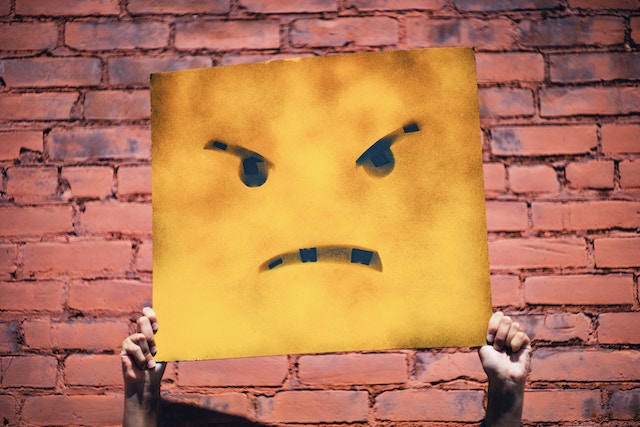Let the journey of self-discovery enrich your life...
Depression doesn’t discriminate. It affects people regardless of gender, ethnicity, age/phase of life, sexual orientation, and socioeconomic status.
If you’ve ever been depressed, you know firsthand that depression can be debilitating. And you’re not alone. Around 16% of the U.S. population (an estimated 32 million people) will become clinically depressed in any given year.
Depression in men
Despite the “be strong no matter what” directive society tends to tacitly impose on men, men are not immune to depression. According to data from the National Health Interview Survey (2010–13), 9% of men struggle with feelings of depression or anxiety on a daily basis. This is a significant number of individuals grappling with ongoing depression.

Most of us can probably recall a time in our life that involved significant emotional struggle, a period where sadness loomed large and little seemed to matter. When the pain is all-consuming—when a blend of self-loathing, apathy and a sense of futility about the future takes over—sadness gives way to depression.
One important difference between men battling depression and women battling depression is that men too often do not seek professional help when depressed (1). It seems like some of us would rather go it alone, maybe out of an allegiance to stoicism (“I should be able to deal with this”) or because feelings of shame may arise at the idea of needing help. (“Everyone in my life will see me as a loser, including myself, if I have to rely on someone for help.”)
Male depression symptoms
There has been an increasing awareness that some men might not fit so neatly into the typical symptom profile used to diagnose clinical depression (2, 3). Instead of the central feature of sadness or “feeling blue,” impatience, a low frustration tolerance, and being quick to anger are often in the forefront of their experience.
A recent study in JAMA Psychiatry shows that when “male-type” symptoms of depression are included in assessing rates of depression, men are just as likely as women to be diagnosed with clinical depression (4).
The symptom profile for some men struggling with an underlying depression might include anger issues, alcohol and substance abuse, and risk-taking behaviors. It may be that for some men, their view of what it means to be a man (i.e., rigidly holding on to certain masculine ideals, even unhelpful, unrealistic ones) may prevent them from experiencing the sadness often associated with clinical depression.
Rather, sadness may somehow get transformed into agitation, a quick-tempered reactivity. It’s important to consider this when thinking about the symptoms of depression in men.
Symptoms of depression in men
Of course, anger in and of itself doesn’t always equate to male depression. Struggles with anger should be considered within the overall context of your life. And these questions might help get you started when thinking about whether what you (or your partner) are experiencing is depression:
Do you have a history of being impatient and quick to anger?
Do you see a pattern of risk-taking behavior that is potentially unconsciously being used to medicate an underlying depression?
Are alcohol and/or drugs or sexual acting-out increasingly being used to “take the edge off” or deal with the stresses of life?
Do you find yourself withdrawing from things that used to matter to you?
The men who come to me for “anger management” issues frequently see their anger as an exclusive reflection of external events (“If my wife would stop doing/saying that, then I wouldn’t get so pissed off”; “If my boss wasn’t so uncooperative”; “If work wasn’t so demanding”; etc.). But what sometimes becomes clear is that feelings of helplessness exist in some area of their life; a helplessness that can readily fuel anger; a sense of helplessness that may be part of an underlying depression.
Reflecting on these questions expands the focus beyond sadness as the main criterion for depression, especially for some men. There are men who get depressed and feel a debilitating level of sadness and hopelessness. And there are men who get depressed and find themselves increasingly prone to anger.
Anger often masks underlying feelings of vulnerability (feeling less-than, helpless, uncertain). When men keep circling back to impatience/anger, they remain imprisoned in a constrictive emotional vortex, one that blinds us to deeper experiences that may need attention.
Men need a place where they can learn to reach beyond agitation and anger and find a voice that captures other underlying experiences that may be difficult to face. The “I’ve always been impatient” rationale or the “I’m just under a great deal of stress” sound-bite often prevents men from doing the self-reflective, deeper work needed to expand their emotional repertoire, an expansion that can go a long way in combatting depression in men.
Richard Nicastro, PhD is a psychologist with over twenty years’ experience.
He offers online individual and couples counseling (teletherapy) for residents of Texas.
**In addition to Texas, Dr. Nicastro is now offering telecounseling to residents of Alabama, Arizona, Colorado, Delaware, Washington DC, Georgia, Illinois, Missouri, Nebraska, Nevada, New Hampshire, North Carolina, Oklahoma, Pennsylvania, Tennessee, Utah and Virginia.**
Please contact Dr. Nicastro to discuss your treatment needs.
References
(1) Addis, M.E. and Mahalik, J.R. 2003. Men, Masculinity, and the Contexts of Help Seeking. American Psychologist, 58(1), p5. Washington, DC: American Psychological Association.
(2) Lynch J, Kilmartin C. The Pain Behind the Mask: Overcoming Masculine Depression. New York, NY: Haworth Press; 1999.
(3) Winkler, D, Pjrek E, Kasper S. Anger attacks in depression—evidence for a male depressive syndrome. Psychother Psychosom. 2005; 74 (5): 303-307.
(4) Martin, L.A., Neighbors, H.W., Griffith, D.M. JAMA Psychiatry. 2013;70(10):1100-1106.









